Perfect Storm
For Viola
-
Ships in 1 to 2 weeks
Details
- Instruments
- Ensembles
- Genres
- Composers
- Publishers
- Formats
- Item Types
- Usages
Description
SKU: PR.114415100
For Viola. Composed by Shulamit Ran. Sws. Contemporary. Solo part. With Standard notation. Composed March 22 2010. 8 pages. Duration 10 minutes, 30 seconds. Theodore Presser Company #114-41510. Published by Theodore Presser Company (PR.114415100).ISBN 9781491110003. UPC: 680160599899. 9x12 inches.
Melia Watras, a foremost performing violist and professor of viola, has commissioned a good number of composers for new works for her instrument. In her commission of Ran, she requested that a starting point be an excerpt from any established work in the viola's repertoire of Ran's choosing. Ran immediately turned to the haunting viola solo passage from Luciano Berio's Black Is the Color (from Folksongs). While the Berio is infused throughout Ran's Perfect Storm, she has crafted a sonic landscape of varied mood, using an array of the violist's skills and techniques in an impressive concert work. See a video excerpt on YouTube from the world premiere, which includes a discussion of the work by Ran and Watras._______________________________________Perfect Storm for solo ViolaPERFECT STORM is indeed a perfect storm for the viola literature. Violist Melia Watras’s commission proposal came with a guideline that Shulamit Ran draw inspiration from any staple of the viola repertoire. Ran found this in the prominent viola motif from Luciano Berio’s “Black Is the Color of My True Love’s Hair,” the opening setting of his Folk Songs – taking the chain of inspiration one level further. Ran’s resulting work is a perfect storm of beauty with drama, and of freshness with hints at familiarity.
PROGRAM NOTEWhen violist Melia Watras approached me about composing a solo viola piece for her, she presented an idea that added an intriguing extra dimension to this commissioning project. Her hope was to have me create a work that, in some way, alluded to, or made use of, an existing work of my choice from the viola repertoire, enabling both works to be performed side by side.As I began reviewing, in my head, an imaginary strip of “famous viola licks” (harder to do than with violin or cello…), along with some favorite 19th century music I found myself returning time and again to the central motif, played by viola, from the first song of Luciano Berio’s Folk Songs for singer and instruments. This gesture was playing in my mind also through another “filter” – an instrumental ensemble work composed in 1985 by my friend, the Israeli composer Betty Olivero, who was a student and protégé of Berio’s and who made recurring use of that particular fragment in her composition Presenze. My memory of her rendition, though quite faint now, seems to have helped etch that lovely little “viola moment” into my mind.It is always an interesting experience, composing music that aims, from the start, in a pre-determined direction – in this case the Berio motif – yet also aspires to have its own life, quite independently from the source of the quotation.In the resulting solo viola work, PERFECT STORM, the Berio motif serves as a focal point that, once established, is used as a “return” moment and the point of departure for extended new elaborations. The architectural sweep of the piece may suggest to some a “ritornello” form. In addition to the lyricism and sweetness of the opening materials – mine and Berio’s – the landscape covered in the piece includes stretches of music that are intense, dance-like, ferocious, and for a while even suggesting, to its composer at least, “fiddle” playing style.At the end, I believe that the borrowed materials, the “found object”, is thoroughly integrated into my composition, spawning music not readily suggested by the original point of inspiration, yet obviously enabled by that miraculous alchemy that is part of the process of creating music.— Shulamit Ran.
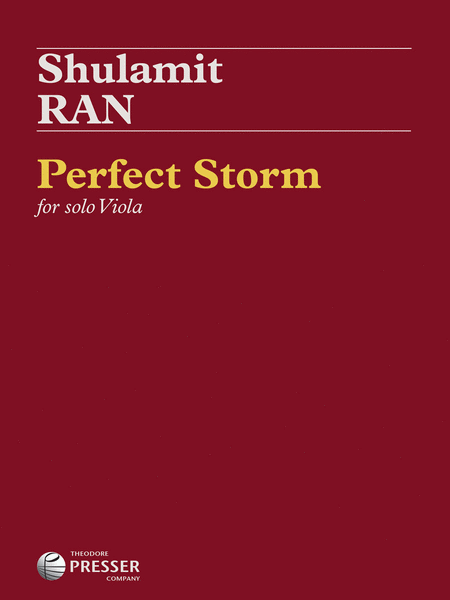
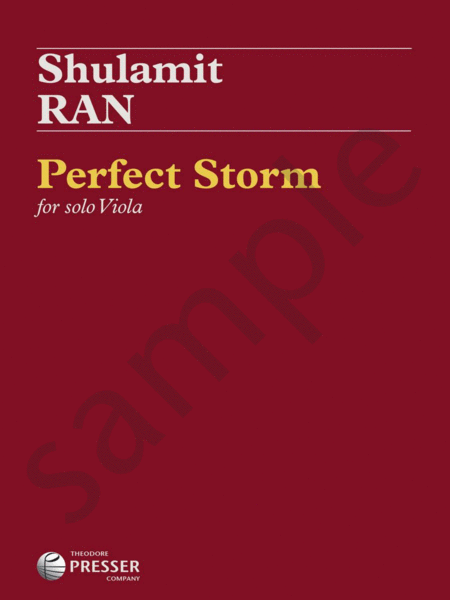
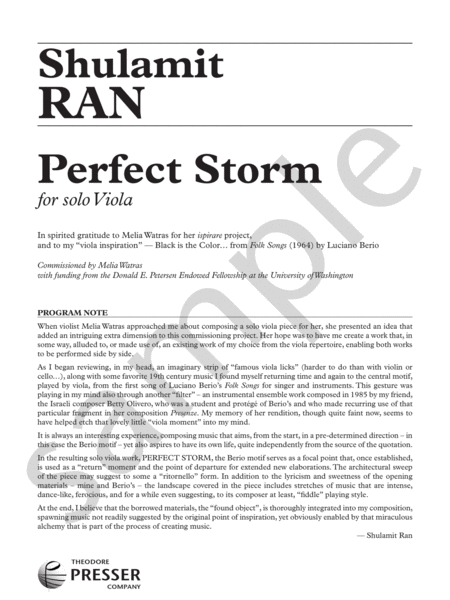
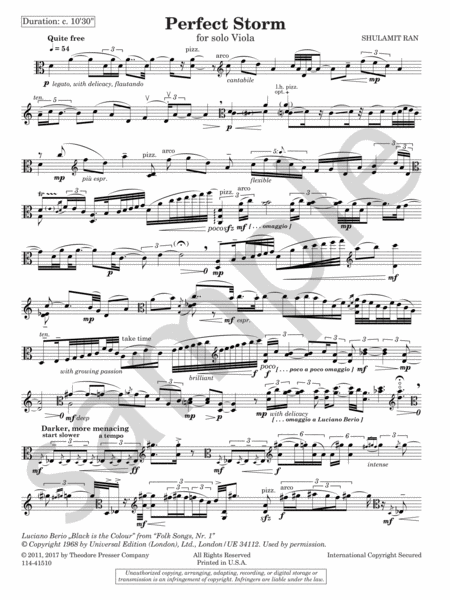
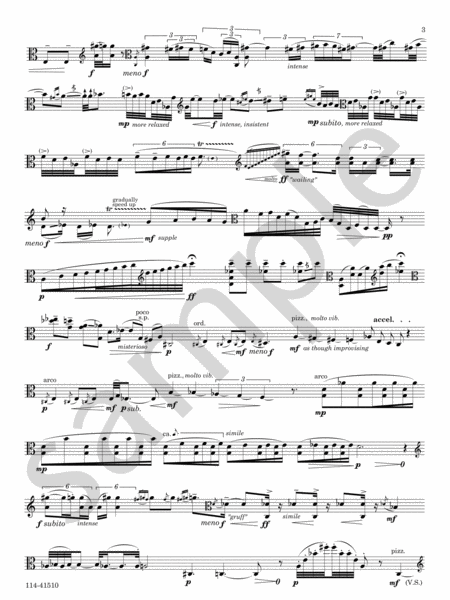
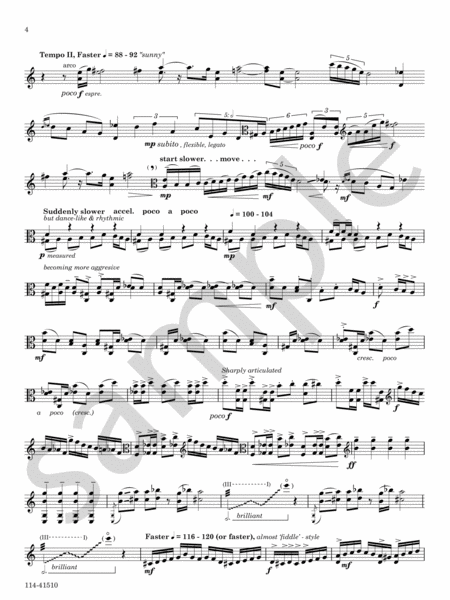
 Share
Share